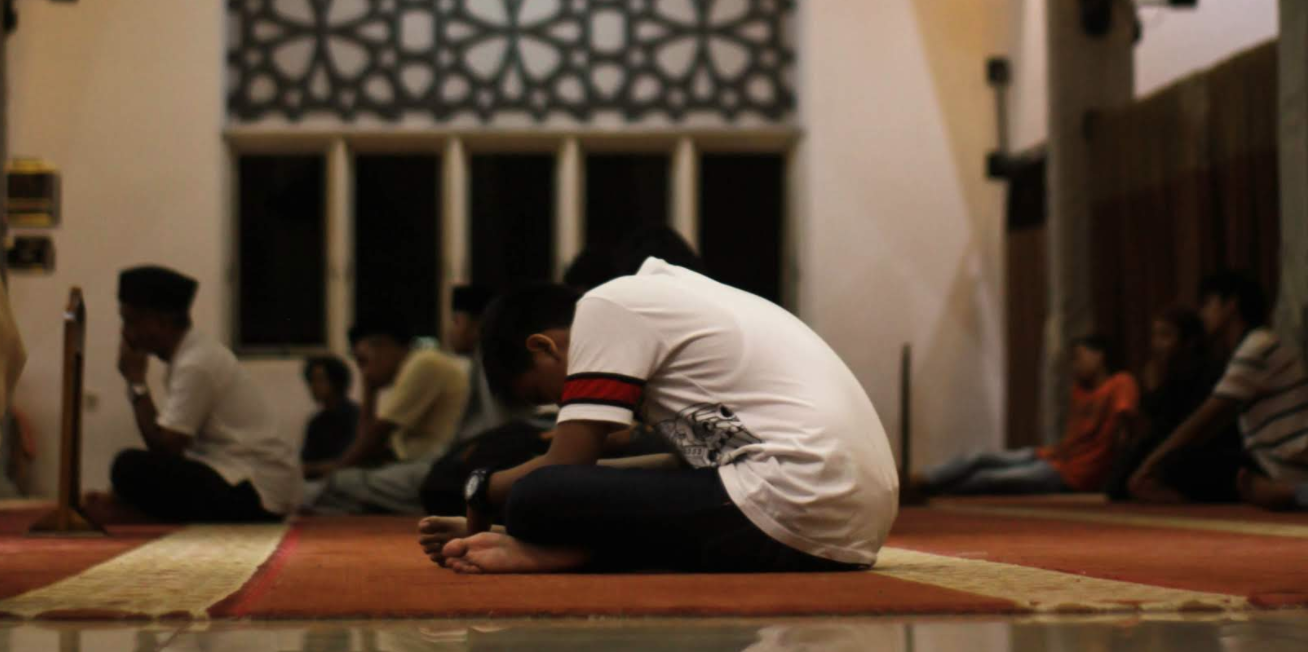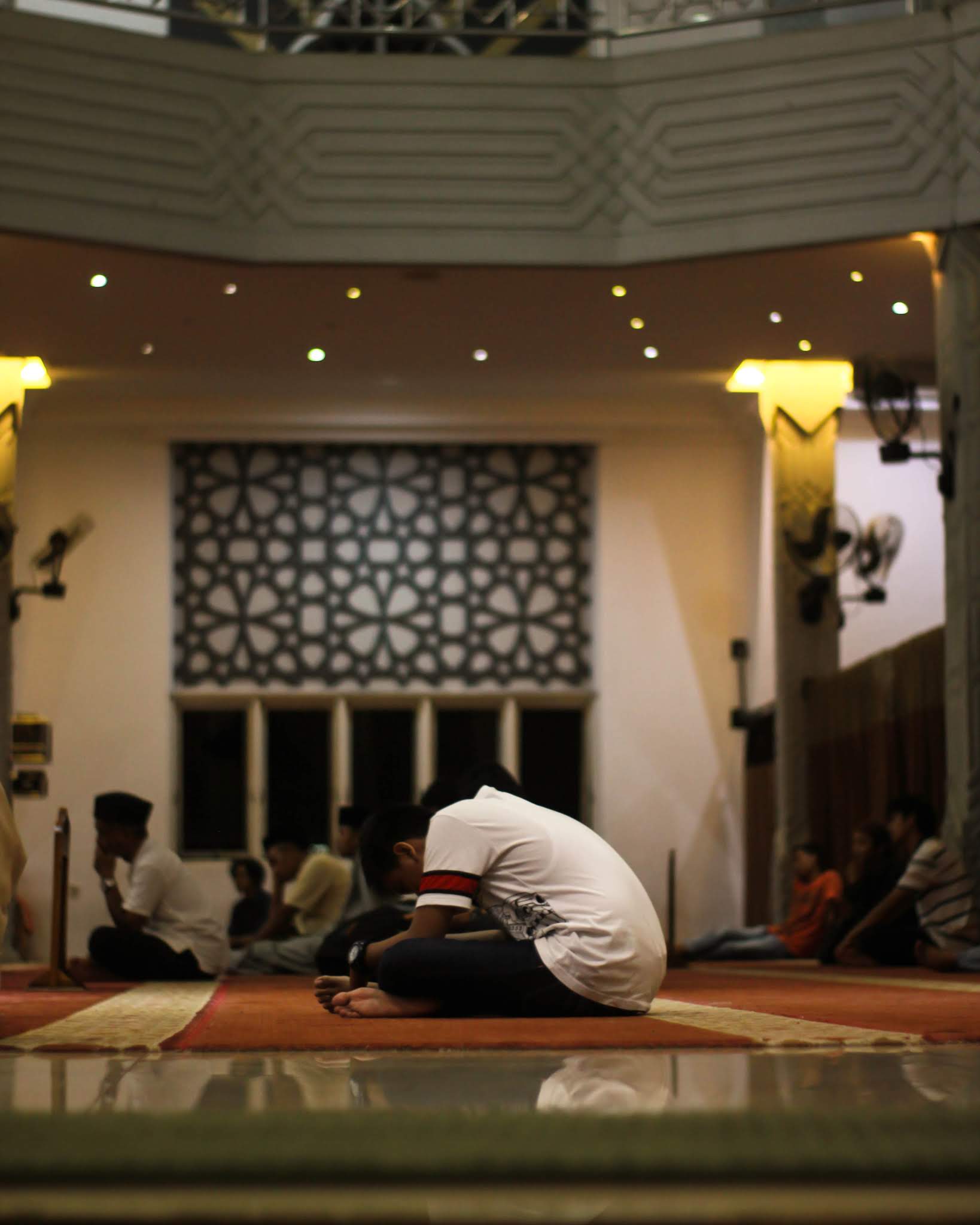‘Why Don’t They Believe Me?’ Muslim Boy Asks


BAY RIDGE – The Department of Education (DOE) argued that the complaint a Muslim family, along with Council on American-Islamic Relations-NY, filed last year against the DOE for allegedly bullying a nine-year-old because of his faith, in retaliation for alleged misbehavior, was unsubstantiated and the actions of the school aide were not discriminatory.
To recap, the ordeal began last May during Ramadan, when nine-year-old Ilyas Aljahmi (I.A.) was determined to fast, even though nine-year-olds don’t need to do so. During the lunch break at P.S. 264, located on 89th Street and Fourth Avenue in Brooklyn, kids who were observing Ramadan were escorted to the school’s theatre instead of the lunchroom so they didn’t have to watch other kids eat. On May 14, the lunch aide asked students who were fasting to move to the right side of the line so they could be taken to the theatre. The young boy, along with the other kids, moved to the right side of the line.
Then, the lunch aide allegedly said, “You will sit in the cafeteria and watch all the kids eat while you are fasting!” The young boy denies ever laughing at or mocking the lunch aide. But still, as punishment, he was taken to the lunchroom, while the other Muslim kids went to the theatre. According to the complaint, he felt upset and humiliated and was trying not to cry in front of his classmates. You can read more about what happened here.
This week, the DOE submitted its argument/position statement to the claims and said that the complaint was unsubstantiated and cited not enough evidence because the employee denied ever making such a statement. Four students had testified that the employee did make that statement to the boy.
According to the position statement, the respondent (a school aide) had observed another school aide reprimanding Ilyas and allegedly telling him to “sit down” if he did not behave. After that aide turned around, the respondent said she saw Ilyas continuing to talk and not stay in line. So, the respondent told Ilyas to come with her and sat him in a separate booth in the cafeteria, she said. According to the other aide, the respondent made no mention of fasting or watching other students eat.
The position statement also notes that the school aide who is not the respondent does not recall the incident.
“[The school aide] does not specifically recall the incident, but observed [the respondent] remove I.A. from the line of fasting students because I.A.’s class was being ‘rowdy.’ [The school aide] then heard [the respondent] tell I.A.—’Ok, now you can step into the lunchroom’ or ‘come into the lunchroom’—but [the school aide] did not hear [the respondent] mention anything about fasting or watching other students eat.”
According to the position statement, the respondent “brought I.A. into the cafeteria because students could not be left in the hallway, and she could not leave the cafeteria to take him to another location with supervision because she was on duty. [The respondent] intended for I.A. to ‘sit out’ a few minutes before having one of the School’s paraprofessionals escort him to the theatre or outside.”
Then, a paraprofessional approached Ilyas and allegedly asked him if he wanted to go upstairs after being told that he was fasting. According to the position statement, Ilyas said no.
“[The respondent] is protected by qualified immunity because she acted in good faith and in accordance with the law,” the position statement read. “At all times relevant to the acts alleged in the complaint, Respondents’ actions were reasonable, proper, lawful, constitutional, made in good faith, and without malice.”
Ilyas’s mother Zaman Mashrah and CAIR-NY disagree. And Ilyas? The 10-year-old boy is still traumatized. He constantly asks his mother, “Why don’t they believe me?”
“How do you answer that question for your child? I want to cry when he asks me that. I just tell him that ‘I believe you and that’s all that matters!’ and then I try to comfort the best I can. A school is supposed to be a child’s safe haven, not a place where he gets traumatized,” Mashrah told Bklyner. “Like any 10-year-old, Ilyas has a range of emotions. Sometimes he’ll bring it up and get sad and scared, other times he’ll get frustrated thinking about it or if I bring it up. He just wants to put this behind him and forget about it, but can’t.”
Today, CAIR-NY filed its rebuttal.
“[The respondent] turned I.A.’s religion against him to punish him because she believed, in bad faith, without merit and not based on fact, that I.A. was laughing, mocking, or being rowdy. That is the epitome of religious bullying and discrimination,” CAIR-NY’s brief stated. “Under no circumstance is it acceptable for a Respondent Department employee to use a student’s religion against the student as a form of punishment. Respondents use absurd reasoning to reach their laughable conclusion that they conducted a fair investigation that resulted in a decision that I.A.’s allegations were unsubstantiated.”
According to CAIR-NY, Ilyas had to describe the incident three times: once to the principal, once in written form, and once in the interview with the Office of Equal Opportunity (OEO), that investigates complaints of discrimination and sexual harassment.
“Each time he was emotional and made to suffer. Despite a significant amount of time lapsing from the incident and from when the student witnesses were interviewed, four witnesses, according to Respondents, corroborated I.A.’s allegations that [the respondent] discriminated against I.A. and told him that she was going to force him to sit in the cafeteria and ‘watch all the kids eat’ while he fasts. This fact alone is sufficient to give rise to the inference of discrimination.”
Additionally, the rebuttal states that the school aide’s recollection does not contradict Ilyas’ allegations, especially since she admitted that she did not specifically recall the incident.
“Yet, Respondents use [the school aide’s] recollection to somehow exonerate [the respondent]. It is possible that [the school aide] overheard [the respondents] instructions to I.A. to come into the lunchroom after she had made her comment that she was going to punish I.A. by making him watch the students eat while he was fasting,” the brief read. “Moreover, [the school aide] supports I.A.’s assertion that he did not misbehave. According to Respondents, [the school aide’s] recollection is that I.A.’s class—not I.A.—was being ‘rowdy.'”
The DOE, in its position statement, stated that four students said they heard the respondent make the alleged statement: “You will sit in the cafeteria and watch all the kids eat while you are fasting!” But, it concluded that the students were “prompted” and therefore, cited “insufficient evidence.”
“Respondents discount three students’ corroboration of I.A.’s account because they needed to be ‘prompted’ of [the respondent’s] statement. It is entirely reasonable to prompt a young child to refresh their memory especially given the time lapse between the incident and the interviews,” CAIR-NY wrote. “Respondents mischaracterized the other students’ recollections. None of the students contradicted I.A.’s account. Rather, the other students did not remember whether the statement was made or not.”
Upon reading the conclusion, Mashrah was upset all over again. She told Bklyner she wasn’t surprised though.
“Like any mother in that situation, I expected DOE to do the right thing and protect my child. It’s unconscionable to think DOE would disregard my child’s suffering and protect the adult that bullied him,” she said. “It means that the school system only pays lip service to Muslims. They don’t take religious bullying seriously. It’s really sad that DOE would try to sweep this incident under the rug.”
Danielle Filson from the DOE gave Bklyner this statement: “We take all allegations of discrimination seriously, and the case is still ongoing.”
“Four students corroborate Ilyas’ version of the incident and all the employee had to do was deny it and that’s who the DOE sided with,” Mashrah said. “They told my son and the other students that they don’t matter. The message is clear: Muslims are not a priority for the DOE.”
According to Ahmed Mohamed, the Litigation Director at CAIR-NY, the DOE failed Ilyas and his family.
“Schools are meant to be safe-havens where children go to learn not to be bullied by school employees. Four students corroborated Ilyas’ allegations, and still, the DOE choice to protect the adult that engaged in religious bullying. It’s unacceptable. The DOE failed Ilyas and this family but CAIR-NY will do everything its power to bring accountability and send a message that we will not tolerate religious bullying in our schools.”
And Mashrah? She just wants justice for her son.
“The tears that came down his face the day of the incident when I went to pick him up from school will never leave my memory. I want to make sure there’s accountability,” she said. “A message has to be sent that religious bullying cannot be tolerated especially from administrators. I cannot let this happen to another child. My son has been traumatized and I don’t wish this upon any child or mother. My faith compels me to keep fighting.”



